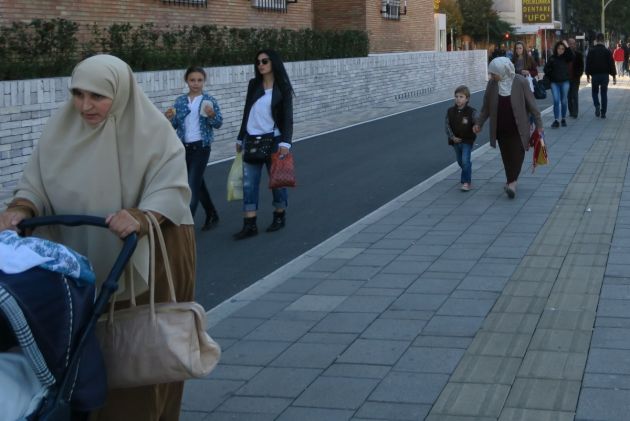Top European Union judge supports workplace ban on headscarves

Companies should be permitted to ban Islamic headscarves from the workplace, but only if all other religious and political symbols are forbidden as well, an EU court adviser has said.
If visible religious or political symbols are banned in terms of a company dress code or uniform policy, the hijab should not be exempt, an adviser to the European Court of Justice said on May 31, the Daily Mail reported
http://www.dailymail.co.uk/news/article-3617845/Employers-forbid-headscarf-general-ban-place-EU-court-adviser.html#ixzz4ALdguq8m
The case centers on a compensation claim from a woman working as a receptionist for the Belgian company G4S Secure Solutions, who was fired from her job for wearing a headscarf for religious reasons.
The company had instituted a general ban on wearing visible religious or political symbols, London's Independent newspaper reported.
The European Court of Justice based in Luxembourg was asked if forbidding the headscarf violated an EU law prohibiting discrimination on the basis of religion.
"While an employee cannot 'leave' his sex, skin colour, ethnicity, sexual orientation, age or disability 'at the door' upon entering his employer's premises, he may be expected to moderate the exercise of his religion in the workplace," Juliane Kokott, the EU court's advocate general, wrote in her May 31 opinion.
The Court of Justice interprets EU law to make sure it is applied in the same way in all the member countries, and settles legal disputes between national governments and EU institutions.
The hijab, a veil that covers the head and chest, has stirred fierce debate in some European countries, particularly in France which places strong importance to the separation of State and religious institutions.
The case is the first for Europe's highest court is handling a case on banning the headscarf.
The court can also, in certain circumstances, be used by individuals, companies or organisations to take action against an EU institution, if they feel it has somehow infringed their rights.
The current case was referred to the European Court of Justice by a Belgian court, hearing the compensation claim from the woman who had been working at the company for three years.
